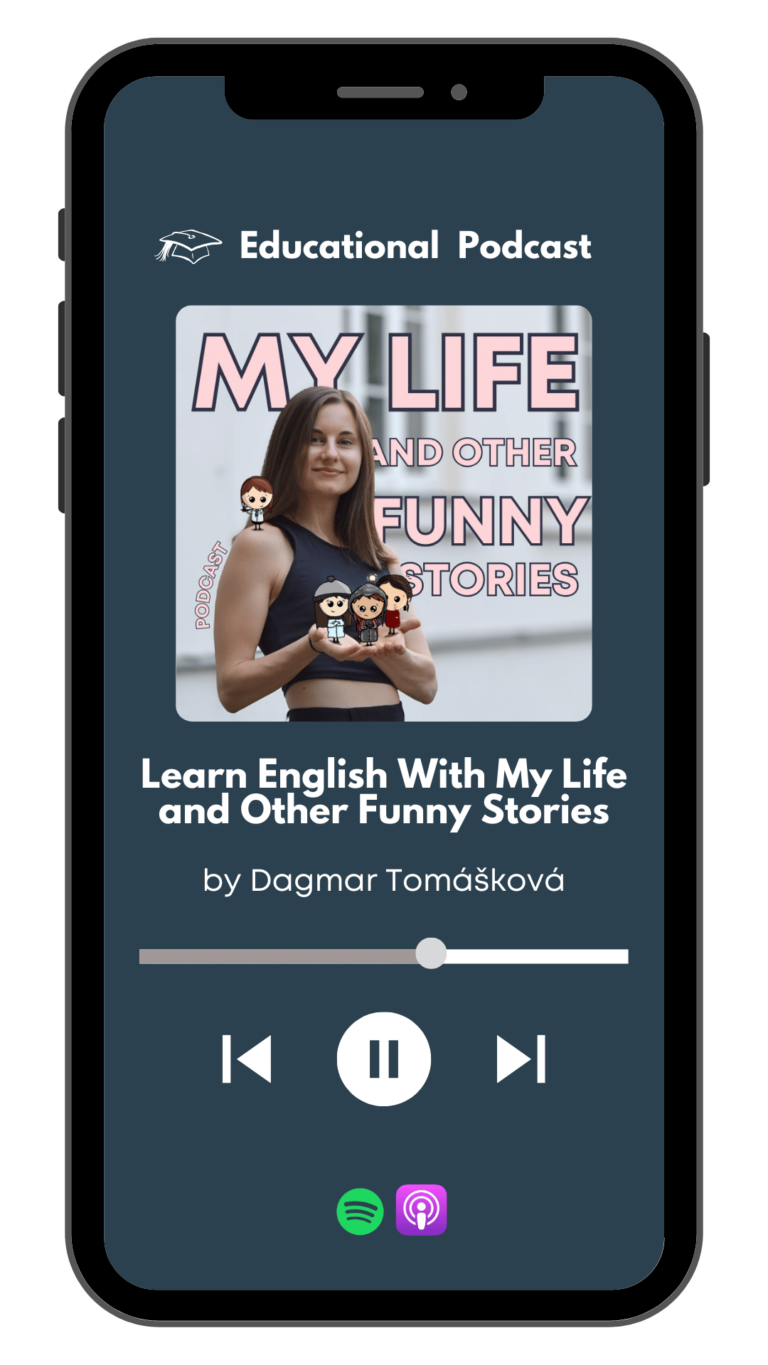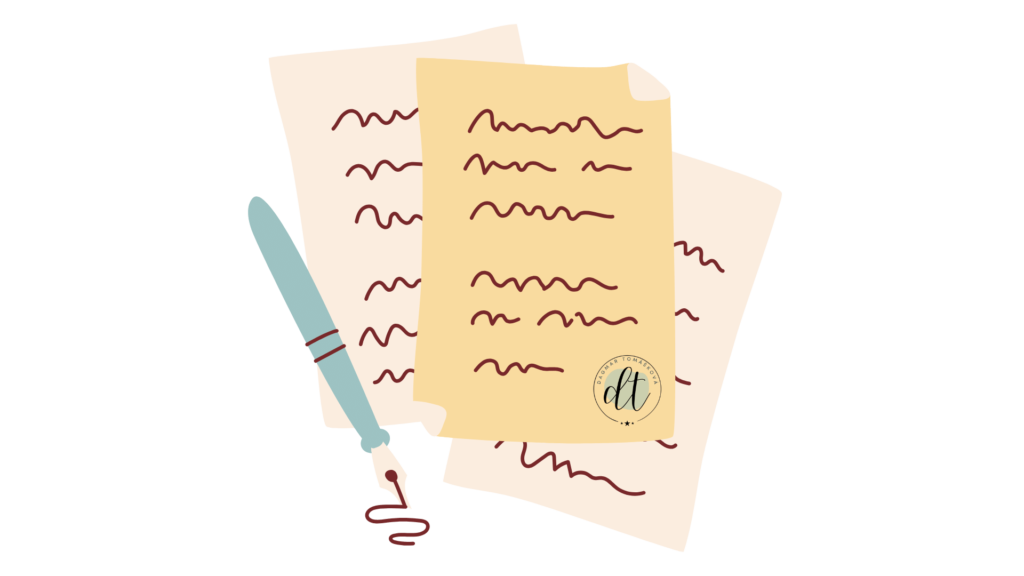
Ep.85: Instant Gratification VS Long-Term Happiness

Today, I want to talk about something that I think all of us have thought about at some point: Should I enjoy life right now… or should I wait and work for future happiness?
This idea comes from a study I read — don’t worry, it’s not boring, I promise. And I’ll explain everything in simple English so even if your English isn’t perfect, you’ll still understand. This episode is also a great way to learn vocabulary connected to emotions, goals, and decisions.
LISTEN TO THE EPISODE HERE:


WRITTEN TRANSCRIPTION OF THE PODCAST
Hello and welcome to my podcast My Life and Other Funny Stories. My name is Dagmar Tomášková, I am an English tutor and coach and I created this podcast for English students who want to improve their oral comprehension. As always you can find the transcription of this episode and vocabulary list in the notes of the podcast.
Today, I want to talk about something that I think all of us have thought about at some point: Should I enjoy life right now… or should I wait and work for future happiness?
This idea comes from a study I read — don’t worry, it’s not boring, I promise. And I’ll explain everything in simple English so even if your English isn’t perfect, you’ll still understand. This episode is also a great way to learn vocabulary connected to emotions, goals, and decisions.
Before I start, let’s do a small vocabulary window where I will teach you a few advanced words that I will use throughout the episode. here they are:
- Instant gratification – doing something that makes you feel good right in that moment – for example eating something good gives you instant gratification – it is tasty and you enjoy it
- Long-term happiness – feeling happy in the long run – not just small moments of happiness but having a satisfying life
You can find of all these in the transcript, so be sure to check it out!
Okay, let’s go!
Have you ever stood in front of a chocolate cake and thought, “Should I eat it now and enjoy it… or wait, be healthy, and maybe feel proud later?” That, my friends, is what we call a classic happiness decision.
Some people say: Live in the moment! Others say: Work now, enjoy later! And here’s the thing — both sides have good reasons.
A new study by researchers from the US and Australia looked into this exact topic. They asked: “How do our ideas about happiness change the way we act?”
They found something really interesting — what we believe about happiness actually changes our behaviour. That’s surprising, isn’t it?
Let me explain the study in a simple way- the researchers actually did a few studies so we will go one by one:
Study 1:
The researchers asked students to think about a big goal they had. For example, getting a degree, saving money, learning English… something that takes time and effort.
Then they asked students if they agreed with statements like:
“It’s worth sacrificing fun now to be happy in the future.”
“I want to enjoy life right now and live in the moment.”
They also looked at how much time the students were spending on their goal vs. how much time they were spending on fun activities (like Netflix, Instagram, parties — you know what I mean!).
They also asked how happy students thought they would feel when they reached their goal, and how bad they felt when they ignored their goal to do something fun instead.
What did they find?
People who believed in delayed happiness — meaning they were okay with waiting for future joy — worked more on their goals. But they also felt more stressed and guilty when they didn’t stick to those goals.
On the other hand, people who believed in living in the moment spent more time on fun things and felt better in general. They felt more meaning, connection, and optimism in life.
So: Both groups had a kind of happiness, just in different ways!
Study 2:
The researchers did the same thing with older people and found the same result. People who waited for happiness were more focused on big goals. And this gave them a strong feeling of meaning and purpose.
Study 3:
This one is cool. They gave people two fake newspaper articles to read. One said, “Happiness is like an investment” (something you grow over time). The other said, “Happiness is like a wave” (it comes and goes, enjoy it now!).
Guess what happened?
People who read about happiness as an investment started to think more about future goals and delayed happiness. So yes — we can change how we think about happiness! Our beliefs are not fixed. We can learn and grow. That’s what I love about this part.
Study 4:
In the last study, participants wrote a short diary every day for 12 days. They wrote about what goal they had that day, how much time they spent on it, and how they felt emotionally.
Again, same result. People who believed in delayed happiness worked more on their goals. People who wanted joy now did more fun things. Both had different kinds of satisfaction.
So, what does this all mean?
Sometimes it’s okay to eat the cake. Sometimes it’s good to study and delay the cake.
We don’t have to choose just one path. We can do both.
But…what do I think?
I first heard about the idea of instant gratification or long-term happiness when I was listening to podcasts about fitness coaching. Fun fact, I used to want to become a fitness coach, I worked at the gym, I got my fitness trainer certification and also had some group fitness classes but eventually decided that I would rather have going to the gym as a hobby and not as a job. Anyway, one thing I’ve learned from exercising is that progress is slow. You don’t go to the gym once and expect abs the next day, right? It’s the same with English. We live in a world of instant gratification — we want results now. We post a photo and get likes in five seconds. We order food and it’s at our door in twenty minutes. But language learning, or learning of any skill for that matter, doesn’t work like that. You don’t get a dopamine hit every time you study vocabulary. You don’t magically speak fluently after two lessons. It’s a long game. You just have to show up, do it, and trust that it will get easier. There’s no shortcut — but there is a reward. And just like with exercise, that reward is so much more satisfying because you worked for it. So yes, it’s hard sometimes. But every word you learn, every mistake you make, every conversation you try to have — that’s you getting stronger. Keep going.
But of course, I don’t want to say that I am the queen of self-control, and considering everything, it is also important to enjoy life in the moment. So of course, sometimes I want to feel good, sometimes it is important to have the moments of instant gratification and have the dessert, have the rest that we need and for example choosing to watch stupid videos instead of doing something more productive – because our brain is not a machine and of couse we need a break.
What I am here to say, whether it is your health or your language learning, always try to make the decision mindfully. We are so used to the instant gratification, the small moments of feeling good, that we don’t even realize that we are opening the Instagram app. And suddenly you have been watching Instagram reels for two hours and you don’t even know how you got there. Also with healthy eating habits – choosing something that might not be the best for your body at that moment – but doing it in a way of mindful way – is, in my opinion, okay. But giving in to your first craving for sweets, your first thought of “I want this” – will not bring you long-term happiness. So instead of asking yourself what you want all the time and listening to your dopamine-deprived brain, which says “I want, I want, I want”, ask yourself what you need. What is the best for you at the moment and for the future you. Sometimes, it can be scrolling or some easy activity. But sometimes it is learning and movement. My point is – if you give in to your instant gratification every single time, you will not achieve your goals and sometimes you need to bite the bullet and things that are difficult and challenging and uncomfortable because you know that the happiness will come in the future.
Also, just knowing that our happiness beliefs can change is super helpful. It means that even if you’ve always told yourself “I’m lazy” or “I’m not disciplined” — you can change that. You can learn to delay pleasure when it helps your future. Or give yourself joy when you really need it.
What do you think? Do you agree with me?
Are you more of a live in the moment person? Or are you a work now, enjoy later type?
Let me know on Instagram or send me a message!
Thank you for listening! If you liked this episode, please leave a five-star rating and share it with your friends. Don’t forget, you can find the transcript and vocabulary list in the podcast notes. See you next time.
Source: https://www.bps.org.uk/research-digest/it-better-be-happy-now-or-happy-later

VOCABULARY LIST
instant gratification – okamžité uspokojení
long-term happiness – dlouhodobé štěstí
researchers – výzkumníci
behaviour – chování
sacrificing – obětování
purpose – účel, smysl života
comes and goes – přichází a odchází (nestálé)
beliefs – přesvědčení, názory
not fixed – není pevně dané
participants – účastníci
satisfaction – spokojenost
path – cesta (metaforicky)
fluently – plynně
shortcut – zkratka
mindfully – vědomě
giving in to – podlehnout něčemu
craving – touha, bažení
dopamine-deprived brain – mozek postrádající dopamin
bite the bullet – zatnout zuby a udělat něco nepříjemného
delay pleasure – odložit potěšení